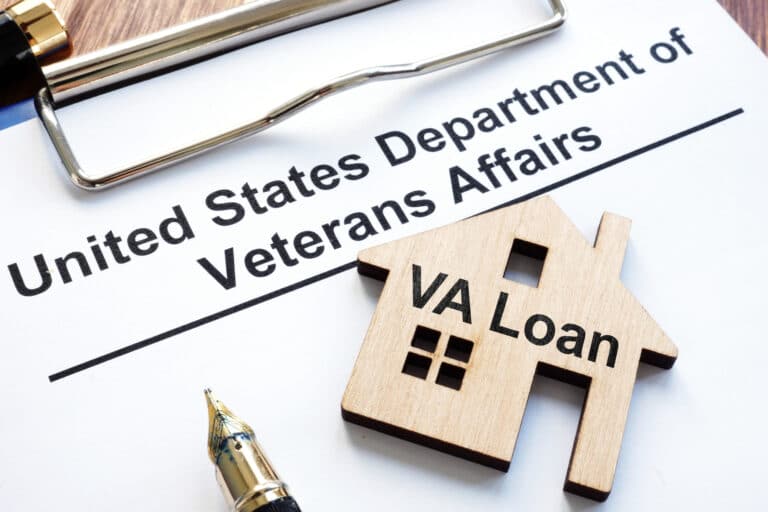
The VA cut loan limits for qualified borrowers last year, but it hasn’t announced whether it will do so again in 2021. This means that veterans and service members will be able to get mortgages with no money down for more expensive properties.
VA Loan
VA home loans are valuable for service members, army and surviving wife/husband who qualify for it. They offer better terms and deals on mortgages and refinancing than the general market when we asked them.
Some of the advantages of VA loans are as follows:
- There is no obligation to pay a down payment in advance.
- Private mortgage insurance is not required (PMI).
- Credit underwriting that is a little more lenient
- Interest rates are low when compared to traditional mortgages.
VA loans are made by banks and mortgage lenders and are backed by the US government. A part of this loan is shouldered by the DVA. Because of the federal backing, lenders are able to provide better terms, such as no down payment, cheaper loan rates, and more flexible underwriting standards. Even with less-than-perfect credit, qualified borrowers may be able to acquire an inexpensive mortgage. However, most applicants are required to pay a VA loan funding charge.
Qualifications for a VA Home Loan
The following are the VA requirements or primary criteria for obtaining a purchase loan:
You must be eligible for a Certificate of Eligibility based on your military service record (COE). This generally applies to the following, according to the Department Of veterans affairs:
- Completed service by a veteran
- Active-duty service members who have completed a minimum of one year of service
- Some Reserve and National Guard personnel
- Surviving spouses who are eligible
- You have to live in the house you’re buying. There are no investment properties available.
- You must fulfill all underwriting criteria, including credit and income restrictions.
What are the terms of a VA loan in 2021?
For qualified borrowers, VA loans no longer have value limits as of last year. That implies there will be no limit on the size of $0 down VA loans for first-time borrowers. The VA funding costs, which most borrowers must pay when their mortgage closes, will stay unchanged in 2020.
For home purchases, funding fees range from 0.5 percent to 3.6 percent for refinances. The charge is based on the loan’s value and type, as well as the amount you put down and whether this is your first VA loan.
These one-time fees assist in the continuation of the loan program. However, certain borrowers may have to pay a fraction of a percent more than the advertised rates in 2021 (0.15 to 0.30 percent). Veterans and service members will pay higher rates, but the funding fee for National Guard and Reserve personnel will be reduced to the same level as other military borrowers.
A financing charge is waived for veterans with service-connected disability and some surviving spouses. Active-duty Purple Heart recipients are likewise exempt from the charge.
Frequently Asked Questions about VA Loans
What paperwork do I need to get ready?
A Certificate of Eligibility (COE) is required to obtain a VA loan. A COE can be obtained through the VA eBenefits website, by mail, or by having your lender obtain one for you.
You’ll need proof that you’ve completed the minimal service requirements. Consider the following scenario:
- Veterans must submit a soft or a hard copy DD Form 214 detailing their character of service and reason for separation.
- Active-duty military members must have an updated or a current statement of service signed by a unit commander, personnel officer, or other authority.
The VA eBenefits website lists the specific documentation required by each type of borrower.
Is it possible for a spouse to apply for a VA loan?
A VA loan may be available to surviving spouses. According to the VA website, spouses may be eligible in the following situations:
- A remarried spouse of a veteran who died in service or from a military-related disability.
- A spouse of a POW or service member who has gone missing in action
- A veteran’s surviving spouse who is receiving benefits for a death that was not caused by the veteran’s service.
- On or after December 16, 2003, a surviving spouse who remarried at the age of 57 or later.
- A surviving spouse of a totally crippled veteran whose death was not caused by the impairment in some situations.
What are the credit and income requirements for a VA loan?
There is no minimum credit score criteria set by the VA. Rather, it forces lenders to consider the entire loan profile.
Mortgage lenders, on the other hand, are free to set their own underwriting guidelines, with many preferring a credit score of 620 or higher.
The VA has income requirements that underwriters should take into account in order to ensure that the borrower’s income is reliable and sufficient to support the loan payment, obligations, and other living expenditures.
The debt-to-income ratio should normally not exceed 41%, according to VA recommendations. If the ratio is higher than 41%, lenders can still approve the VA loan if the borrower’s other credit factors are taken into account.